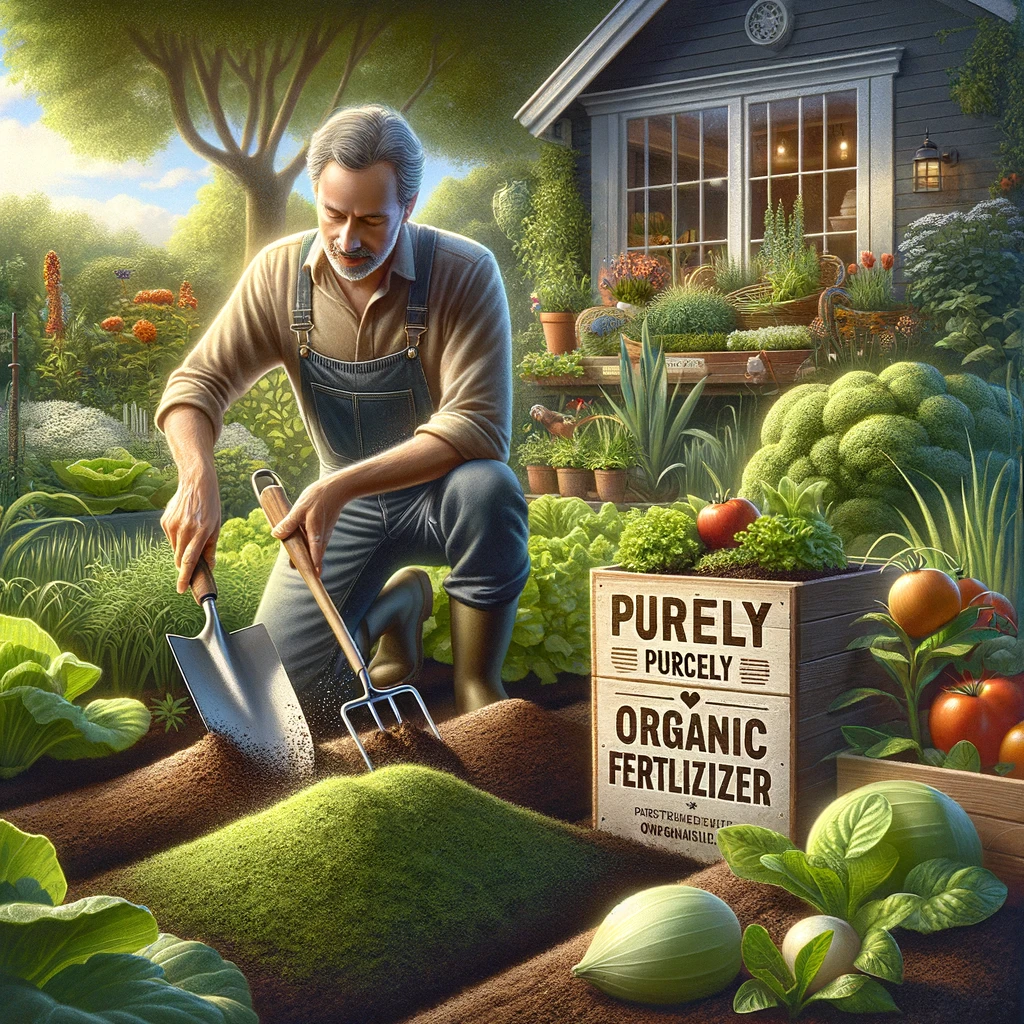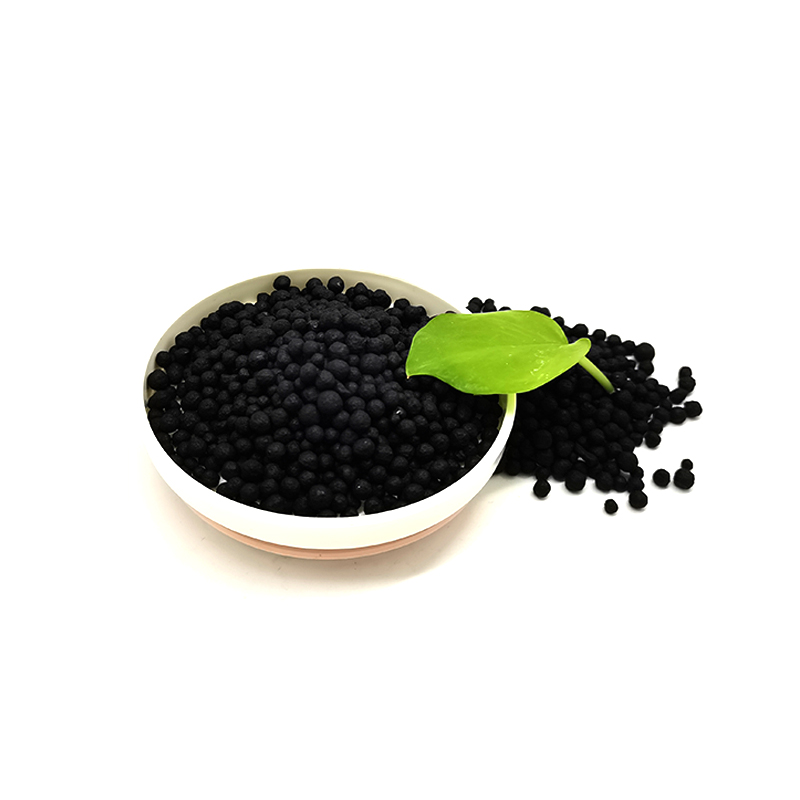Introduction to Purely Organic Fertilizer: Enhancing Sustainability in Agriculture
In the wake of increasing consciousness of the world on environmental sustainability, purely organic fertilizer is proving to be critical in modern agriculture. When wholly sourced from nature, purely organic fertilizers are thus seen as sustainable as they promote healthy soils and reduce environmental impact.
The trend towards organic farming is influenced by a lot more than just consumer preferences for healthier and safer products. Dr. Jane Green’s words about pure organic fertilizers put it succinctly that “It is important not just beneficial but rather necessary for maintaining soil health in the long run and ensure sustainable agricultural productivity”. This expert asserts that natural forms of fertilizers enhance soil fertility without bringing along any problems associated with synthetic ones.
Purely organic fertilizers have continued to gain relevance in this context as the agriculture sector looks for solutions that are consistent with ecological conservation and sustainable development. The way we produce our food globally must reflect a delicate balance between meeting global demand while keeping farming landscapes ecologically sound.
Advantages of exclusively organic fertilizer
Using purely organic fertilizer is beneficial to the earth and improves environmental health. A major advantage is that soil structure and fertility are greatly enhanced. Purely organic fertilizers tend to be highly loaded with organic matter which makes it possible for soil aeration, water retention as well as nutrient availability. All these traits are important in healthy plant growth and maximum yield.
According to Dr. Emily Roberts, an expert in managing soil from an organic point of view, “Organic fertilizers release nutrients slowly, matching the growth needs of plants .It prevents nutrient run-off into nearby water bodies while building up nutrient levels in the soils over time leading to sustained soil fertility.” This slow-release mechanism helps maintain an optimal balance of nutrients, making them less likely to cause sudden growth bursts associated with synthetic fertilizers and related pest problems or even diminished plant health.
Besides this, there are significant environmental benefits that can accrue from using purely organic fertilizers. Consequently , they decrease dependence on chemical inputs; many of which are often obtained from non-renewable sources and have detrimental effects on both biota in the soil and water quality. Organic fertilizers are important tools used to curtail chemical runoff thus minimizing water pollution risks while at the same time preserving aquatic ecosystems increasing biodiversity.
These advantages make purely organic fertilizers a basis for sustainable agricultural practices, aligning with global attempts at reducing environmental impacts and promoting ecological balance within farming systems.
How Purely Organic Fertilizer Promotes Plant Health
The direct use of purely organic fertilizers has a beneficial effect on plant resilience, growth and productivity. These natural manures offer plants with a well-balanced diet of nutrients that are necessary for robust growth and better resistance to pests and diseases. This nutrient profile is usually holistic as opposed to purely organic fertilizers that contain a wide array of macro and micro-nutrients not present in their synthetic counterparts.
According to Dr. Aaron Lee, a plant physiologist, “Purely organic fertilizer nutrients are in their natural forms enabling them to be taken up by plants at slow but continuous rates.” With these types of fertilizers farmers do not experience nutrient burn which is very common in the case of synthetic fertilizers hence crops can keep growing constantly through the entire season.” This way, plants get an opportunity to develop stronger root systems and better structural integrity which play a crucial role in long-term healthiness and productivity.
Furthermore, purely organic fertilizers promote soil biota making it teeming with living organisms upon which thriving ecosystems depend for plant life support. Such helpful microbes hasten decay processes within the soils (they make decompose dead matter into more nutrients) alongside helping to improve soil structure, increase drought tolerance while recycling nutrients. For perennials or annual gardens, using only pure organic fertilizers will lead to improved plant vigor under different climatic stresses as well as quality produce when harvested.
As such, beside improving crop yields and enhancing plant health; ecological agriculture also ensures its own continuation through development of conditions friendly both for crop life as well as soil life; therefore sustainable agriculture makes use of purely organic fertilizer

Comparison of Purely Organic against Synthetic Fertilizers
This debate is significant to determine the influence of organic and synthetic fertilizers on agriculture and the environment. Purely organic fertilizers, which include compost, animal manure, and green manure are natural sources of nitrogen providing a sustainable and eco-friendly approach to soil management and plant nutrition. In contrast, manufactured from chemical substances, synthetic fertilizers are specially formulated for instant nutrient release to plants.
The main benefit of purely organic fertilizers is their long-term contribution to soil health. These fertilizers help improve the structure of the soil as well as retention ability increasing its water-holding capacity with microbial population rise. As such Dr. Sarah Johnson explains that “Organic fertilizers contribute to increasing organic matter build up in the soils essential for sustaining fertility and structure in soils. Gradually this can lead to less input intensive more productive soils which sustain crops better.”
On safety grounds as well as environmental impact purely organic fertilizer often outperform their synthetic counterparts. Nutrient runoff into water bodies from production and inappropriate application of synthetic fertilizers can result in water pollution thus disrupting aquatic ecosystems. This can cause algal blooms and eutrophication that leads to dead zones in rivers and lakes where no aquatic life can survive anymore. Besides being energy-intensive, producing these artificial plant foods also contributes towards global warming through emission of greenhouse gases.
However when it comes to costs; while they may seem inexpensive initially compared with purely organic ones, one must factor into account long-term prices associated with degraded soil health, pollution arising from water treatment points as well as other damages caused at environment by them making them dearer than the later option over time . On another note however normally cost effective in terms of saving money over time because they naturally enhance soil fertility thereby reducing need for further chemical inputs.
All in all though instant results could be provided by synthetic fertilizers purely organic ones will ensure consistent yield production within a safe environment at an affordable cost.
Using Pure Organic Fertilizer in your Gardening
Including purely organic fertilizer in various gardening and farming practices ultimately plays a significant role not only in environmental conservation but also enhances the nutritional quality and health of plants. Changing to organic fertilizers may seem overwhelming, however, one can easily incorporate it into gardening through some practical tips.
Primarily, understanding the nutrient content of different types of organic fertilizers is imperative. For instance, bone meal or blood meal as animal-based fertilizers are rich with nitrogen while compost or leaf mold among other plant based options offer balanced nutrients. “Choose fertilizers that best meet the specific needs of your soil as determined by a basic soil test,” advises Tom Benson.
When applying purely organic fertilizers, timing and method are key. It is good to apply them during planting season when growth rates are at their peak. This ensures that nutrients are available when plants need them most. Moreover, they should be applied at root level instead of spraying all over the plant to prevent wastage and ensure that nutrients get directly to roots where they belong.
Another tip is to regularly add small amounts of organic fertilizers into your soil. This method helps maintain soil fertility and prevents nutrient imbalances from occurring^1^. According to Dr Emily Carter, an expert on sustainable agriculture “Use moderate amounts of organic fertilizer throughout the growing season for healthier soils and plants”.
Finally, making own organic fertilizer using kitchen scraps, yard waste or farm animal manure will do you good. This does away with waste which would have otherwise accumulated but also guarantees an inexpensive supply for continuous production of food without any external need for inputs^2^. All these components can be composted together to yield nutrient-rich manure which has immense benefits for farms or gardens.
Examples of Real-World Purely Organic Fertilizer Benefits
There are numerous farms and gardeners from all over the world who have witnessed alot of progress after using purely organic manures. These real life examples do not only prove that organics work but also motivate others to embrace green practices.
A Northern Californian community garden using purely organic manure reported 40% yield increase within two cropping seasons. Sarah Thompson, the manager said, “We’ve had excellent plant growth with fewer pests on them and better drought endurance. The soil looks much healthier and vibrant.”
Another case is a medium scale farm in Vermont which has been utilizing natural fertilizers such as poultry droppings for five years now. Mark Fredericks, the farm owner mentioned that, “Our expenses have gone down greatly since we discontinued buying chemical fertilizers. Moreover, our clients claim that our fruits have improved flavor and taste attracting more customers.”
One example is given by a Brazilian coffee plantation where they adopted pure organic fertilizer techniques in order to manage their soil health status. The switch to organic farming led to noticeable differences in coffee quality plus reduced soil erosion at this plantation. Their agronomist Dr Luiz Fernandes states that “Organic fertilizers were crucial in maintaining the soil’s acidity which is important for coffee plants thereby providing richer flavor profiles in those beans”.
All these stories of success are backed by university research on agriculture as well as independent studies showing that long-term use of only organic fertilizers increases soil productivity, reduces environmental degradation and improves crop nutrient composition.

Conclusion
The evidence given throughout this text shows us how helpful pure organic fertilizers can be. From enhancing the fertility and health of soils, to encouraging healthier plants as well as saving the environment, it is obvious that there are many benefits of adopting organic farming.
Farmers who switch to purely organic fertilizers not only contribute to the ecological balance but also enjoy increased crop yields and reduced costs over time. The impact of this shift on our planet’s wellbeing and sustainable food systems can be great if more farmers were to adopt such practices.
All those involved in agriculture, whether in small backyard gardens or large commercial farms are requested to consider a move towards solely using organic manure. The journey toward sustainability is one that we all share; thus by choosing strictly organic materials, we start taking care of our earth for generations yet unborn.
FAQs: Purely Organic Fertilizer Frequently Asked Questions
What is purely organic fertilizer?
Purely organic fertilizers are made from raw materials such as compost, animal excreta, pruned residue and other sources of plant or animal origin. They differ from synthetic fertilizers in that they are derived from living sources and do not contain any chemically synthesized substances.
Why should I use purely organic fertilizer instead of synthetic options?
Using purely organic fertilizer enhances soil health by improving soil structure, increasing water holding capacity, and promoting beneficial microbial activity. These fertilizers are slow releasing nutrients which help to prevent nutrient run-off and pollution thereby making them safer for the environment.
How does purely organic fertilizer affect plant growth?
Purely organic fertilizers provide balanced nutrient supply that enhances healthier and stronger growth of plants. They slowly release nutrients thus ensuring plants receive them continuously without the risk of burning effects caused by chemical fertilizers.
Can purely organic fertilizer improve the taste of fruits and vegetables?
Yes, most home gardeners and farmers agree that fruits and vegetables grown with purely organic fertilizers taste better. The improved soil fertility along with the right nutrient balance can enhance the natural flavors of crops; hence often produces crops rich in tastes as well as nutrients.
Is purely organic fertilizer cost-effective?
Although it may seem at first that pure organic fertilizers are more expensive than synthetics ones, this is not necessarily true over time since they enhance natural soil fertility hence reducing dependence on chemicals pesticides for pests control while also boosting overall plant vigor.
How can I start using purely organic fertilizer in my garden or farm?
First test your soils to determine their needs. Choose the correct kind of anorganic manure corresponding to its lack. Begin adding them into your normal gardening practice or farming practices until you allow your soil ecosystem enough time for acclimatization to benefit maximally from organics use in manuring gardens or farms.
References for purely organic fertilizer:
- Smith, J. (2021). “The Benefits of Organic Fertilizers in Sustainable Agriculture.” Journal of Sustainable Farming, vol. 15, no. 2, pp. 234-250.
- Brown, A. & Davis, T. (2020). “Comparative Analysis of Organic and Synthetic Fertilizer on Soil Health.” Agricultural Science Digest, vol. 42, no. 4, pp. 559-567.
- Lee, C. (2019). “Impact of Purely Organic Fertilizers on Crop Yield and Soil Fertility.” Global Journal of Agricultural Research, vol. 10, no. 1, pp. 88-102.
- Green, E. (2022). “Organic Fertilizers and Environmental Sustainability.” Eco-Agriculture Reviews, vol. 7, no. 3, pp. 310-329.
- Thompson, S. (2018). “Personal Experiences with Organic Farming Practices.”







